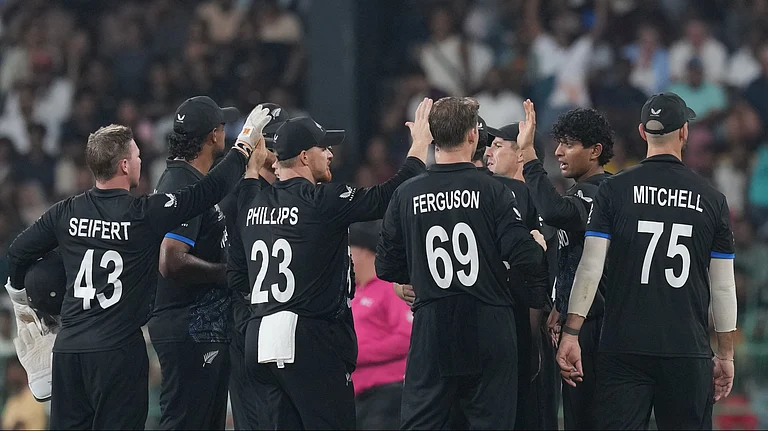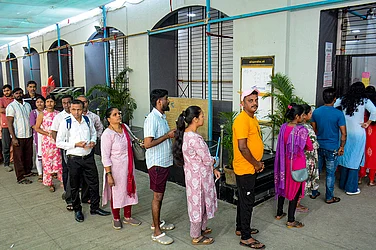Freedom of press – the fourth pillar of democracy – is guaranteed under the amended Article 19 (1)(a) of the Indian Constitution. But over the decades, there have been countless attempts with threats of various degrees to control this freedom. The Emergency of 1975 was one of the darkest times for the Indian press. It was the first time that this constitutional guarantee came under attack by means of legal but questionable measures.
Six months into the Emergency, in 1976, two laws that existed to protect news publications and journalists were repealed and a third new law was enacted. Together, these were the Parliamentary Proceedings (Protection of Publication) Repeal Act, 1976; Press Council (Repeal) Act, 1976; and Prevention of Publication of Objectionable Matter Act, 1976. Subsequently, all domestic and international news was banned, media houses were raided, foreign journalists and correspondents were expelled and the accreditation of over 40 Indian reporters was revoked.
The laws, a direct attempt to deny freedom of press, lasted a year and a half till the Janata Party government that came to power revoked them. They restored the Parliamentary Proceedings Act of 1956 (also known as the Feroze Gandhi Act) to give the right to press to report all news. But 46 years later, freedom of press still remains a question that looms large over newsrooms.
On the latest raids against journalists and others associated with NewsClick and People’s Dispatch over alleged China links, the Press Club of India and other media rights bodies and activists have raised their concerns over growing searches by probe agencies at media houses. In a short statement on X, the Press Club said that it was “deeply concerned” about the multiple raids and was monitoring the developments.
NewsClick raids were conducted in connection to a case filed under Unlawful Activities (Prevention) Act, 1967 (UAPA) in August which alleged that the organisation received illegal funding from China. The outlet’s founder Prabir Purkayastha and the HR head have been sent to a 7-day police remand. NewsClick has been known for its critical reporting of the government and it has been under the scanner of probe agencies since 2021 when its offices were first raided by the Enforcement Directorate.
A trend has emerged in the last decade where central agencies like the Income Tax Department, Enforcement Directorate and Central Bureau of Investigation are seen knocking at the doors of media offices including BBC, The Quint, Dainik Bhaskar, NDTV and others following their critical reportage of the government. These ‘searches’ have often been termed “routine checks” or otherwise investigated under anti-terror laws over financial discrepancies.
According to a report by Reporters Without Borders, there are more than 100,000 newspapers in India and 380 TV news channels. Yet, it says that press freedom in India is “in crisis” since 2014 when the current BJP government came to power. The RSF report noted that the fear of a political backlash has forced journalists to restrict their content.
This was particularly seen in Jammu and Kashmir where journalists have had to contend with threats which got worse when the Centre revoked the semi-autonomy of the erstwhile state in 2019. In October 2020, when the National Investigation Agency (NIA) conducted raids at the offices of leading English daily Greater Kashmir, the Kashmir Editors’ Guild (KEG) expressed concern saying, "Kashmir media continues to get targeted, demonised, vilified, and raided by both the state and non-state actors for a long time now.”
In January 2022, Kashmir Press Club was forcibly shut. In a region that faces constant internet blackouts and curfews, local journalists are among the few reliable sources of information. But the closure of their place to meet and work together presented a worrisome state of press freedom.
Back in 2017, in the initial years of the current government, the CBI had conducted a raid at NDTV offices, and at the residence of its founder Prannoy Roy. The agency alleged that its founders duped ICICI Bank of Rs 48 crores. The channel denied the allegations saying it was a witch-hunt for having locked horns with the Central government over its reportage.
In 2021, Dainik Bhaskar and Bhaskar Samachar offices were searched by the I-T department following their in-depth reporting on the government’s handling of the Covid-19 pandemic.
In February this year, the I-T department searches at BBC’s Delhi and Mumbai offices following their two-part documentary in the UK, ‘India: The Modi Question’ grabbed global headlines. The documentary had alleged Prime Minister Modi’s role in the 2002 Gujarat riots. However, the I-T department claimed that it was conducting a “survey” as the broadcaster was "defiant and non-compliant" regarding past notices and had significantly diverted its profits.
The government invoked emergency laws to ban the documentary in India and remove any links or clips being shared on social media. Some critics say that it was this crackdown that caused India’s rank on the 2023 World Press Freedom Index to slip to 161st among 180 countries. It was at 150 last year.


























